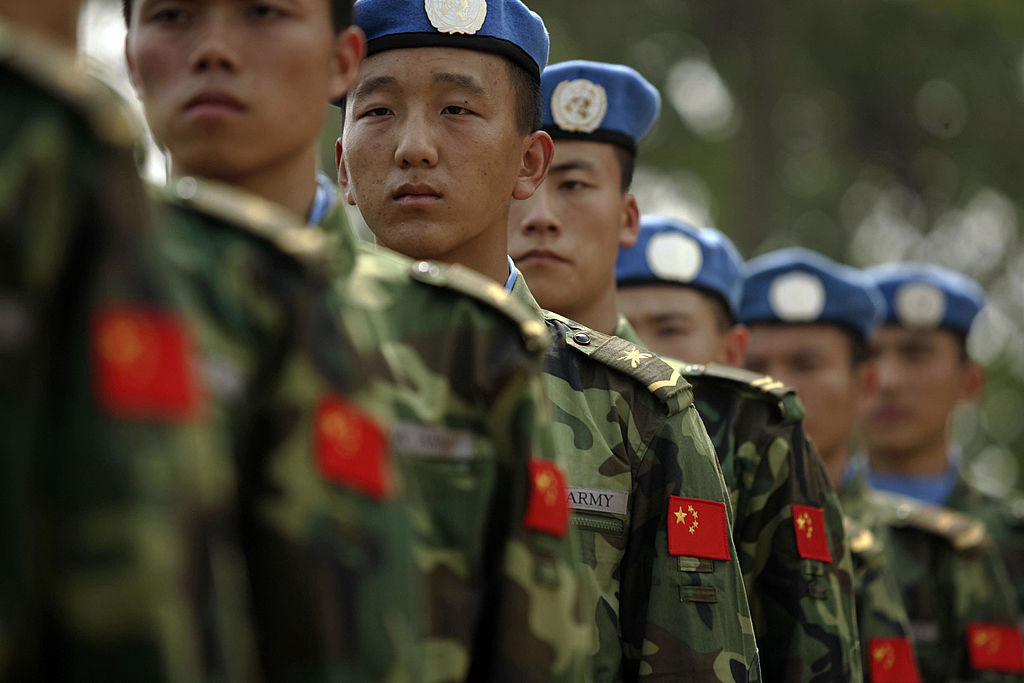As China Expands PSCs, Will It Change Rules Under Which They Work?
ADF STAFF
Chinese private security companies (PSC) are a growing presence in Africa, where they often are tasked with protecting major infrastructure projects connected to China’s Belt and Road Initiative.
China claims about 10% of the global private security industry. The six to eight Chinese PSCs working in Africa concentrate their efforts largely in countries where China has substantial infrastructure investments, such as Kenya. Despite their description as private, all Chinese PSCs are state controlled and populated by former members of the People’s Liberation Army — an extension of the Chinese Communist Party’s principle that “the party controls the gun.”
Chinese leader Xi Jinping has suggested that PSCs’ presence in Africa likely will grow in the coming years.
“We will strengthen our capacity to ensure overseas security and protect the lawful rights and interests of Chinese citizens and legal entities overseas,” Xi said in his speech to the 20th National Congress of the Communist Party of China in 2022.
Attacks against Chinese nationals in Africa — notably the unsolved murder of nine people at a newly opened Chinese mine in the Central African Republic in March 2023 — highlight the increasing risks for Chinese citizens living and working in Africa.
“Since the beginning of 2023, Chinese economic interests in Africa have been increasingly affected by uncertainty and insecurity,” Alessandro Arduino, an affiliate lecturer at the Lau China Institute, King’s College London, told a webinar hosted by Georgetown University. “The number of attacks against Chinese personnel and investments are rising.”
With $23 billion dollars invested in everything from dams to railroads to water systems between 2007 and 2020, Chinese leaders are more likely to employ security to protect those investments from potential instability, according to analyst Sergey Sukhankin.
“China’s growing involvement in, from a security point of view, unstable and perilous areas — a trend that became particularly visible after Beijing launched the BRI in 2013, which traverses some of the world’s most-dangerous areas — warrants strengthening protections for both material assets and Chinese nationals in these regions,” Sukhankin wrote recently in an article for the Jamestown Foundation.
Observers say China’s drive to expand its PSC network in Africa will happen in a legal gray zone. Chinese domestic laws do not apply to PSCs working abroad. International law can be difficult to enforce, leaving PSCs to abide by local laws, such as they are, in the countries where they operate.
In some countries, such as South Africa, laws tightly restrict PSCs. Elsewhere, in countries experiencing coups or conflict, for example, PSCs operate with a freer hand.
“Chinese security firms in Africa are expanding without a strong regulatory framework,” Habib al-Badawi, a professor at Lebanese University, wrote recently on LinkedIn. “This poses risks such as lack of transparency, weak national controls, and undue influence on regime elites.”
Under Chinese law, most PSCs are banned from using weapons. As a result, many pay militias or local security companies as guns for hire, a scenario that can result in human rights violations.
That has already happened in recent years as Chinese PSCs have been involved in shootings and other incidents in Kenya, Uganda, Zambia and Zimbabwe.
As China expands its PSCs in Africa, experts say it faces the question of whether to change the way PSCs operate. Should it, for example, let members carry weapons or work directly with the likes of Russia’s Wagner Group?
“Amidst rising violence overseas and industry disruptions at home, it will be harder for the Chinese private security sector to continue keeping a low profile,” Arduino wrote recently for War on the Rocks.
Chinese PSCs have the potential to fill the gaps created as Russia retools the Wagner Group’s African operations after the death of Yevgeny Prigozhin. Expanding China’s military presence in Africa could potentially reshape Africa’s security landscape, according to al-Badawi.
“China’s [private security companies] could have significant implications for the future of China-Africa relations, as well as for the regional and global security dynamics,” researchers with the website Military Africa wrote recently. “Whether they are a growing threat or a strategic partner remains to be seen.”


Comments are closed.